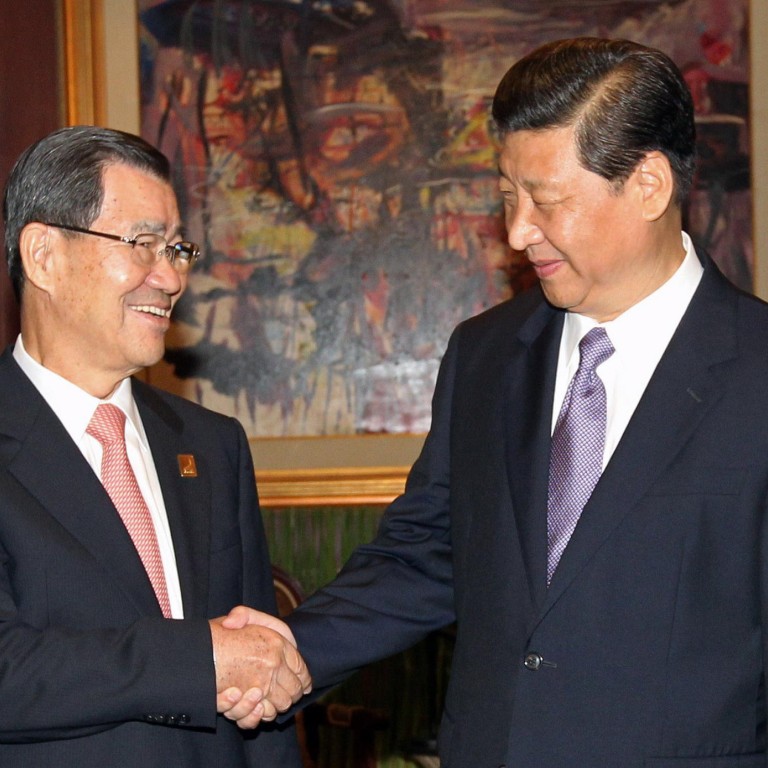
Ma Ying-jeou hails exchanges with Beijing as step towards direct ties
Taiwanese president sees progress in Bali meetings, but analysts caution moves also help advance Beijing's goal of political talks
Taiwanese President Ma Ying-jeou has hailed Beijing's acceptance of more direct cross-strait communications as a step towards normalised relations, although analysts noted that Beijing likely believed the move would push Taipei closer to controversial political talks.
Ma was reacting to a meeting between top cross-strait affairs officials on Sunday on the sidelines of a regional economic summit in Bali, Indonesia. During the meeting, Wang Yu-chi, head of Taiwan's Mainland Affairs Council, and Zhang Zhijun , head of Beijing's Taiwan Affairs Office, reportedly referred to each other by their official titles for the first time.
Earlier at the Asia-Pacific Economic Co-operation summit, President Xi Jinping urged more such direct contacts during a 30-minute meeting with former Taiwanese vice president Vincent Siew Wan-chang. Xi said the consultations were consistent with the accepted "one-China" framework.
"President Ma said such moves exemplify how the two sides do not deny each other's authority to govern," Taiwanese Presidential Office spokeswoman Garfie Li said. She said the president saw it as a good beginning for normalising official relations between the two sides.
The Mainland Affairs Council described the "spontaneous interaction" between Wang and Zhang as a breakthrough, calling their use of each other's titles a "concrete realisation of facing reality" by the mainland.
After decades of bitter rivalry and military flare-ups, relations between Beijing and Taipei improved sharply after Ma took office in 2008 and launched a policy of cross-strait engagement. The two sides have since signed numerous agreements for economic and cultural exchanges.
But Beijing has been reluctant to recognise any official status for the government of Taiwan, which it has regarded as a breakaway province since the end of the civil war in 1949.
Analysts note that the exchange between Wang and Zhang also fit with Beijing's goal of opening political talks with Taipei, which the Communist Party views as a step towards eventual reunification.
Xi told Siew: "The issue of the political divide that exists between the two sides must reach a final resolution step by step and cannot be passed on from generation to generation."
Such political talks remain controversial in democratically run Taiwan.
"Xi made one important point during his meeting with Siew - that is, the two sides should not leave their unresolved problems to the next generation," said Yang Kai-huang, a cross-strait affairs expert at Ming Chuan University in Taipei. "This signals Xi's desire for Taiwan to quickly start political dialogue and resolve their political divide."
Political analyst Lee Sheng-feng said Xi's comment reflected the mounting pressure on Taiwan and direct meetings between officials overseeing cross-strait affairs would actually hasten the prospect of political talks.
"The Ma government should make plans well in advance to prepare for this," Lee said.
Last night, Wang said that Taiwan was not ready to engage Beijing in a political dialogue aimed at unification, according to Taiwan's Central News Agency.
In their talks, Wang and Zhang reportedly committed to establishing a mechanism for regular dialogue between their agencies to "enhance mutual understanding and facilitate cross-strait engagement".
Zhang also reportedly invited Wang to visit the mainland, an invitation Wang said he would be pleased to accept.

